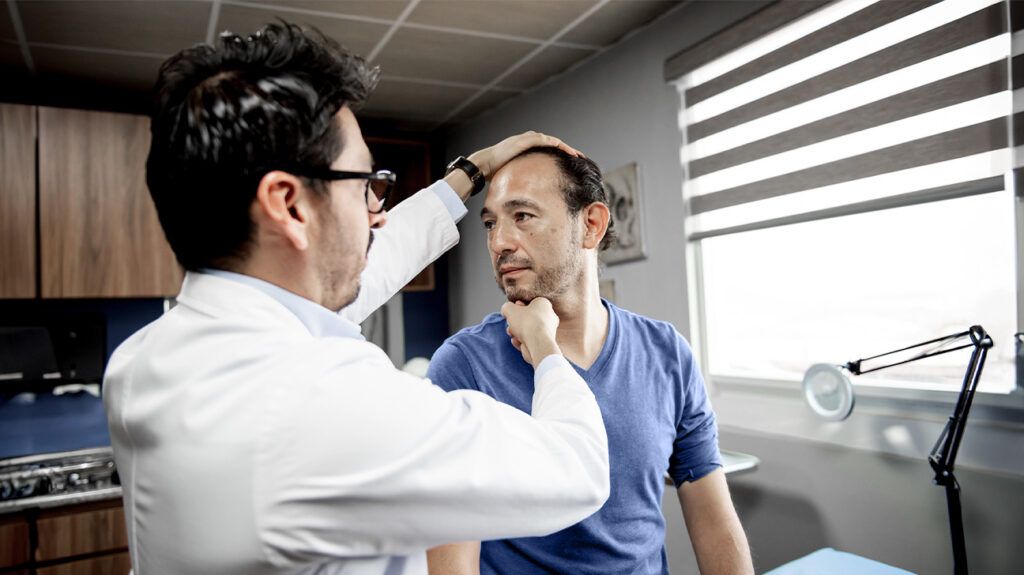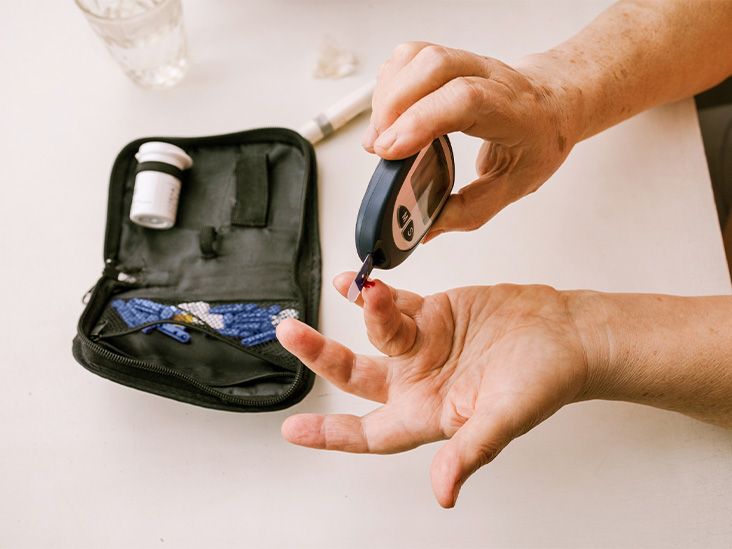Healthcare professionals involved in the diagnosis and treatment of migraine include primary care physicians, headache specialists, and neurologists.
In many cases, people can consult a primary care doctor for migraine. However, a doctor may sometimes refer people to a doctor who specializes in headache disorders and migraine.

Primary care physicians, neurologists, and headache specialists may all treat migraine.
Primary care physician
A primary care physician can diagnose migraine and prescribe medications to treat the condition. Some may also have additional training in migraine or headache disorders.
However, if standard therapies are not working, a primary care physician may refer a person to a neurologist or headache specialist.
Neurologist
A neurologist is a doctor who specializes in diagnosing and treating conditions relating to the brain and nervous system. Neurologists have additional training in headache disorders, such as migraine.
Neurologists
Headache specialist
A headache specialist is a physician or neurologist with further training or expertise in diagnosing and treating head pain disorders.
The American Migraine Foundation (AMF) notes that headache specialists can receive certification from the United Council for Neurologic Subspecialties (UCNS). Physicians who have passed the UCNS certification exam can legally refer to themselves as headache specialists.
According to a 2021 article,
A primary care physician may refer a person to a neurologist or headache specialist in the following situations:
- current treatment is not working or causes intolerable side effects
- a person who is pregnant, nursing, or trying to conceive experiences frequent or severe headache
- a person experiences the following:
- headache for 15 or more days each month
- headache that is significantly different to others they have experienced or that they would describe as the worst headache of their life
How to get an appointment and find a specialist
A primary care doctor may refer a person to a neurologist or headache specialist.
A person may also go straight to a neurologist or headache specialist without a referral. However, insurance providers that cover migraine treatment may require a referral to cover the costs. A person can check whether their insurance company has a list of covered specialists.
People may also get recommendations of specialists from friends, family, and members of support groups. Online resources that can help include:
It may be best to research the practice and physician before booking an appointment. For example, a person may check the specialist’s training and their experience diagnosing and treating the specific migraine type the person has.
It may be helpful if a person does the following before an appointment:
- keeps a migraine journal to record their symptoms and triggers
- makes notes of their key medical history, including any medications and supplements they take
- prepares any relevant medical records or test results to bring with them
- finds out if there is any family history of migraine, if they do not already know
- prepares questions they want to ask the specialist
Questions to ask
People may want to ask questions about potential treatments a doctor recommends, such as the following:
- What results can I expect from this treatment?
- What side effects can it cause?
- Are there any lifestyle changes or complementary therapies that may help?
Initial appointment
During the first appointment, a doctor may ask about the following:
- symptoms and the type of pain
- migraine triggers, frequency, and duration
- effects of migraine on a person’s daily life an activities
- personal and family medical history, including any current or previous medication
The doctor may look at previous test results, if applicable, such as imaging scans of the head or neck. They will likely perform their own diagnostic exams and may also request further tests.
If they diagnose migraine at the first appointment, they may prescribe medications.
Follow-up appointments
Follow-up appointments are important to assess how treatment is working and make changes if needed.
A doctor may carry out a follow-up
The doctor will ask the person about how their symptoms have been, any negative side effects, and the extent to which they have been able to adhere to the treatment regimen.
A neurologist or headache specialist may use the following to help diagnose migraine:
- medical history and symptom assessment
- physical and neurological exams
- eye exams
- MRI and CT scans
- blood tests
Migraine treatment
- acute medications, such as:
- triptans
- nonsteroidal anti-inflammatory drugs (NSAIDs)
- pain-relief medications
- anti-calcitonin gene-related peptide (CGRP) medications
- preventive medications, such as:
- beta-blockers
- anti-seizure medications
- anti-depressants
- anti-CGRP medications
- relaxation techniques and biofeedback
- regular exercise
- a consistent sleep schedule
- avoiding triggers
The cost of consulting a neurologist or headache specialist will vary depending on the type of the specialist a person is seeing and the services they provide.
A person can check with their insurance company to see if they will cover the cost of a consultation with a neurologist or headache specialist. However, the AMF notes that most insurance companies do not cover migraine treatment.
Patient Assistance Programs (PAPs) can help people access migraine treatment at no cost or at a very low cost.
NeedyMeds is a nonprofit organization that can help a person:
- locate PAPs
- find affordable health clinics
- find private or government-funded organizations that offer programs to help people afford the costs that come with a diagnosis
What is the best doctor to see for migraine?
A primary care physician can often diagnose and treat migraine. In more complicated cases, a neurologist or headache specialist may be the best doctor to see for migraine.
What do neurologists do for migraine?
A neurologist can diagnose migraine, rule out other neurological conditions that could be causing symptoms, and identify the best course of treatment.
Can a physician treat migraine?
Many physicians can treat migraine. Some physicians are headache specialists, who have extra training and experience in treating headache disorders.
Can an ENT specialist treat migraine?
An ear, nose, and throat (ENT) specialist, also called an otolaryngologist, may be able to treat migraine. They may differentiate between migraine and conditions with overlapping symptoms.
An ENT may treat non-headache symptoms of migraine with standard migraine treatments.
Can a chiropractor treat migraine?
Although more research is necessary, some studies indicate chiropractic treatments may help treat migraine.
People can consult a primary care doctor about migraine. However, in some cases, they may need to speak with a neurologist or headache specialist.
During an appointment, a doctor will carry out various tests. If they diagnose migraine, they will determine a treatment plan.


